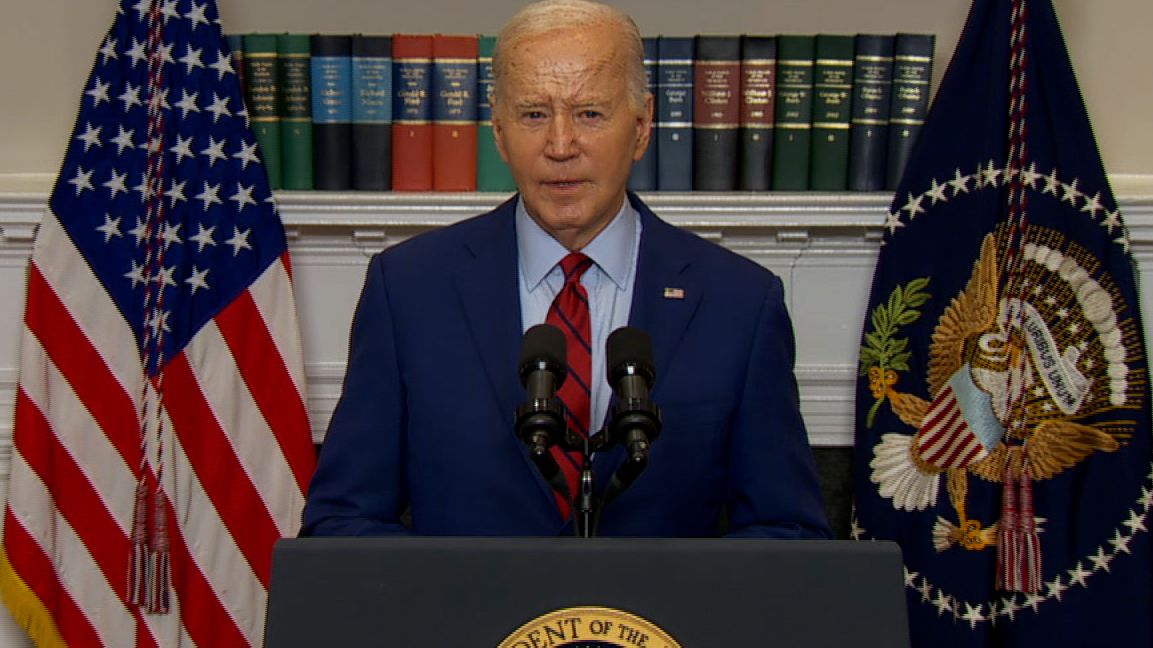This article is more than
6 year oldBirthright citizenship not covered by US constitution, ‘will be ended one way or the other’ – Trump

Trump wrote in a Twitter post:
So-called Birthright Citizenship, which costs our Country billions of dollars and is very unfair to our citizens, will be ended one way or the other. It is not covered by the 14th Amendment because of the words 'subject to the jurisdiction thereof.' Many legal scholars agree.....
In a follow-up tweet, Trump referenced former Democratic Senator Harry Reid's 1993 calim that "no sane country" would award birthright citizenship to the children of illegal immigrants, and vowed that the issue will be "settled by the United States Supreme Court."
Trump’s tweets build on comments the president made in an interview with Axios, taped on Monday. Trump told Axios that he plans to end birthright citizenship “with an executive order,” and called the policy “ridiculous.”
Trump’s words triggered a Constitutional uproar. In the US, birthright citizenship is guaranteed by the 14th Amendment to the Constitution, which reads: “All persons born or naturalized in the United States, and subject to the jurisdiction thereof, are citizens of the United States and of the State wherein they reside.” While originally drafted in 1868 to establish civil rights for freed slaves and their descendents, the amendment has been widely interpreted to grant full citizenship rights to anyone born within the US.
As such, any executive order would be bound by the Constitution. However, since the 14th Amendment’s inception, legal scholars have wrangled over the line “and subject to the jurisdiction thereof.”
‘5,239 is not the top line’: Pentagon promises to send even more troops to seal Mexico border
Some have argued that illegal immigrants are not subject to the US’ jurisdiction as they owe their loyalty to a foreign country, while others have argued that by entering the US, these immigrants make themselves subject to US law. Congress could legislate to clarify this ambiguity, a move hinted at by South Carolina Senator Lindsey Graham on Tuesday.
Vice President Mike Pence also suggested that the line “subject to the jurisdiction thereof” gives Trump wiggle room to issue an executive order.
“The Supreme Court of the United States has never ruled on whether or not the language of the 14th Amendment ‘subject to the jurisdiction thereof’ applies specifically to people who are in the country illegally,” Pence said at a Politico event on Tuesday.
House Speaker Paul Ryan, on the other hand, sided with the opposing school of thought. "You cannot end birthright citizenship with an executive order," Ryan told WVLK Radio on Tuesday. “You obviously cannot do that."
If Trump issues an executive order, its constitutionality will likely be decided by the federal courts, as was the case earlier this year and last year when the first iterations of the president’s controversial travel ban were declared unconstitutional.
For now, the legal debate is confined to Twitter. There, Trump’s supporters and opponents have been bickering over the precise meaning of the 14th Amendment.
Read More (...)
Keywords
Newer articles
<p>They have been blasted from car stereos on the streets of New York City, played by DJs at nightclubs across the US, dubbed into Chinese on TikTok and inspired merengue songs...
Island nation erupts into violence, three dead
Taylor Swift concert photo horrifies internet
Sean 'Diddy' Combs asks judge to reject lawsuit alleging rape of 17-year-old girl in 2003
Ukraine finds itself in a grave situation. Russia appears to be advancing
Ellen to make TV comeback after two years
How the West's plan to punish Russian oil backfired
Will Zionism survive the war?
Putin's Preparing Better Than Us for a Long War
Putin’s choice of new defence minister shows he’s preparing for confrontation with the West




